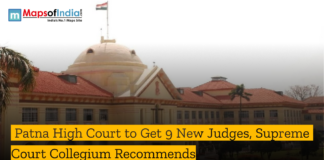To enable it to make a great leap forward in modernization of the public administration and better services to citizens, the Government of Bihar has initiated a number of major digital transformations through the aegis of Bihar Prashasnik Sudhar Mission Society (BPSMS). This is a breakthrough initiative that has been led by the Chief Secretary of the state, and it is part of the quest to ensure that e-governance in the state is intensified and made more transparent, besides ensuring that it can provide more efficient services to its people faster.
The BPSMS, through the new reforms, is expected to revise the system and make changes to how government offices work as well as how government offices relate to the people. At the core of this effort, there is the embracing of the latest digital technology, automation of processes, real-time monitoring tools, as well as the combination of data platforms across the various departments. It is through technology that the government hopes to put its administration processes on a more prompt, transparent and human interface.
In the launching ceremony, the Chief Secretary stated that digital governance is critical in revamping the way it is provided to society. He emphasized that these reforms will facilitate the reduction of delays, elimination of red tape and restrict the large amount of manual intervention, which historically resulted in the inefficiencies of government services. The reform package contains file tracking systems that have been converted to digital, grievance redressal mechanisms that are also online, performance dashboards, and e-office solutions to be launched in several branches and departments in phases.
Through the reforms, a lot of attention is paid to the increased reach of the services at the local level. Digital integration has left the rural and remote barren areas with access to fundamental government services on the internet without the need to travel to district headquarters or wait in long queues. This action is likely to close the digital divide and bring government to the citizens, particularly in the underserved areas.
BPSMS in its reforms also focuses on capacity-building of government employees. The official training programs are being implemented to introduce them to the new digital platforms, data manipulation procedures, and the delivery processes. This strategy will make the digital systems shift to be smooth, sustainable and one that fits in all the levels of the bureaucracy.
Besides internal process reforms, the program will aim at developing a culture in the institution of performance and accountability. Through the application of digital dashboards and real-time reporting systems, the higher authorities are capable of observing the condition of the service request, movement of files, implementation of projects and departmental productivity through a centralized dashboard. The tools facilitate the use of data to make decisions and find out areas of bottlenecks, and allow timely corrective action to be put in place.
The general reaction toward the initiative has been favorable, and there has been a wave of acceptance over the need to have long-overdue modern governance. The citizens and civil society organizations have hopes that through the digital reforms, efficiency in service delivery will not be the sole benefit achieved, but there will also be transparency in the way the government operates.
In this ambitious digital transformation, Bihar will now be in the team of states that lay emphasis on governance practices in the digital era. The BPSMS reforms are an indication of the increasing understanding by the state administration that sustainable development and good governance should be inseparably accompanied by technological innovation. However, as this initiative is being implemented, its success may become a pattern to other states that want to reconsider their governance with the power of technology.










